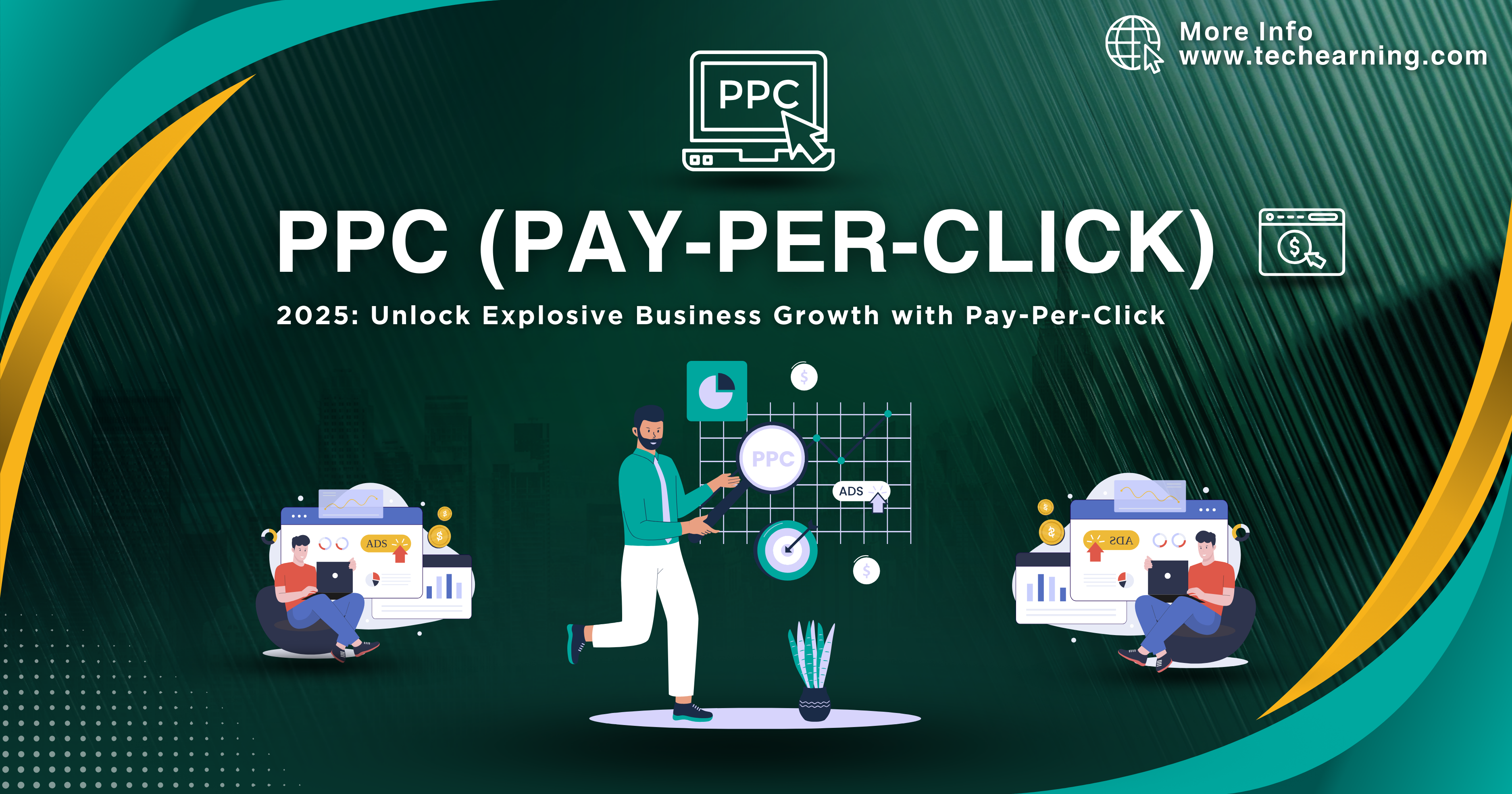
PPC Strategies 2025: Unlock Explosive Business Growth with Pay-Per-Click
What is PPC (Pay-Per-Click) ?
PPC (Pay-Per-Click) is a digital advertising model where advertisers pay a certain amount every time their ad is clicked. It is a type of paid marketing that helps businesses drive targeted traffic to their websites.
How Does PPC Work ?
The most popular Pay-Per-Click Advertising platform is Google Ads, where advertisers bid for different keywords. When a user searches for those keywords in the search engine, relevant ads are displayed to them.
Steps to Set Up a PPC Campaign :
- Keyword Research: Identify relevant keywords with high search volume.
- Write an Engaging Ad Copy: Create a compelling ad copy to engage users.
- Set a Bidding Strategy: Choose between manual or automated bidding.
- Optimize Landing Page: Ensure the landing page is user-friendly and high-converting.
- Set Up Conversion Tracking: Use Google Analytics and tracking tools to measure performance.
5 Amazing Benefits of PPC
Instant Results
Unlike organic SEO, Pay-Per-Click Advertising delivers quick results. Traffic starts flowing as soon as the ads go live.
Reach Targeted Audience
PPC allows you to target specific locations, age groups, and interests, ensuring your ads reach the right people.
Budget Control
You can set a daily or monthly budget for your Pay-Per-Click Advertising campaign, giving you complete control over your spending.
Brand Awareness
PPC ads not only bring traffic but also enhance brand recognition, which can be beneficial for long-term marketing goals.
Measurable Performance
With Pay-Per-Click Advertising , you can track key metrics like impressions, clicks, and conversions, allowing for better campaign optimization.
Difference Between PPC and SEO
PPC and SEO are both essential parts of digital marketing. Paid Search Marketing is a paid method that delivers instant results, whereas SEO is an organic process that provides long-term benefits.
| Aspect | PPC | SEO |
|---|---|---|
| Cost | Paid | Free (but time-consuming) |
| Traffic Speed | Instant | Slow |
| Conversion Rate | High | Moderate |
| Long-Term Benefit | No | Yes |
| Click Consistency | Stops when the budget ends | Continuous with good ranking |
How to Optimize a PPC Campaign ?
- Use Negative Keywords: Exclude irrelevant keywords to prevent unnecessary clicks and save money.
- Perform A/B Testing: Test different ad copies, headlines, and landing pages to determine the most effective combination.
- Utilize Ad Extensions: Use call, location, and site link extensions to enhance your ads.
- Improve Quality Score: Ensure your ads, keywords, and landing pages are highly relevant to improve performance and reduce CPC.
- Monitor CTR (Click-Through Rate): Prioritize ads with high CTR and refine the ones that are underperforming.
- Adjust Bidding Strategy: Depending on the competition and performance, modify your bids accordingly.
6 Best PPC Platforms in 2025
- Google Ads: The most popular and effective Paid Search Marketing platform for search and display advertising.
- Bing Ads: An alternative search engine advertising platform with lower competition.
- Facebook Ads: Best for social media marketing, allowing precise demographic targeting.
- Instagram Ads: Great for visual marketing with high engagement rates.
- LinkedIn Ads: Best for B2B marketing and professional services.
- Amazon Ads: Useful for e-commerce businesses to promote products within Amazon’s marketplace.
How to Make Money with PPC ?
If you are a digital marketer, Pay-Per-Click Advertising can be a great way to generate income. You can work as a freelancer managing PPC campaigns for businesses, run affiliate marketing campaigns, or even drive traffic to your own online store. Many companies look for Pay-Per-Click Advertising experts to handle their paid advertising, making it a lucrative career option.
Common Mistakes to Avoid in PPC Campaigns
- Ignoring Negative Keywords: Not using negative keywords can result in wasted ad spend on irrelevant traffic.
- Not Testing Ads: A/B testing different versions of your ad copy helps determine the most effective one.
- Poor Landing Page Experience: If the landing page is slow or unoptimized, conversions will drop.
- Not Tracking Conversions: Without tracking, you won’t know which ads are performing well.
- Setting and Forgetting: Regular monitoring and optimization are crucial for Pay-Per-Click Advertising success.
Conclusion
PPC is a powerful digital marketing strategy that provides businesses with rapid growth and high ROI. Whether you are a beginner or an experienced marketer, understanding how to create and optimize Pay-Per-Click Advertising campaigns can help you achieve your business goals efficiently. By using the right PPC platforms and strategies, you can drive high-quality traffic to your website and boost conversions.
Looking to master digital marketing? Visit our Home Page for expert tips and cutting-edge Pay-Per-Click Advertising strategies.